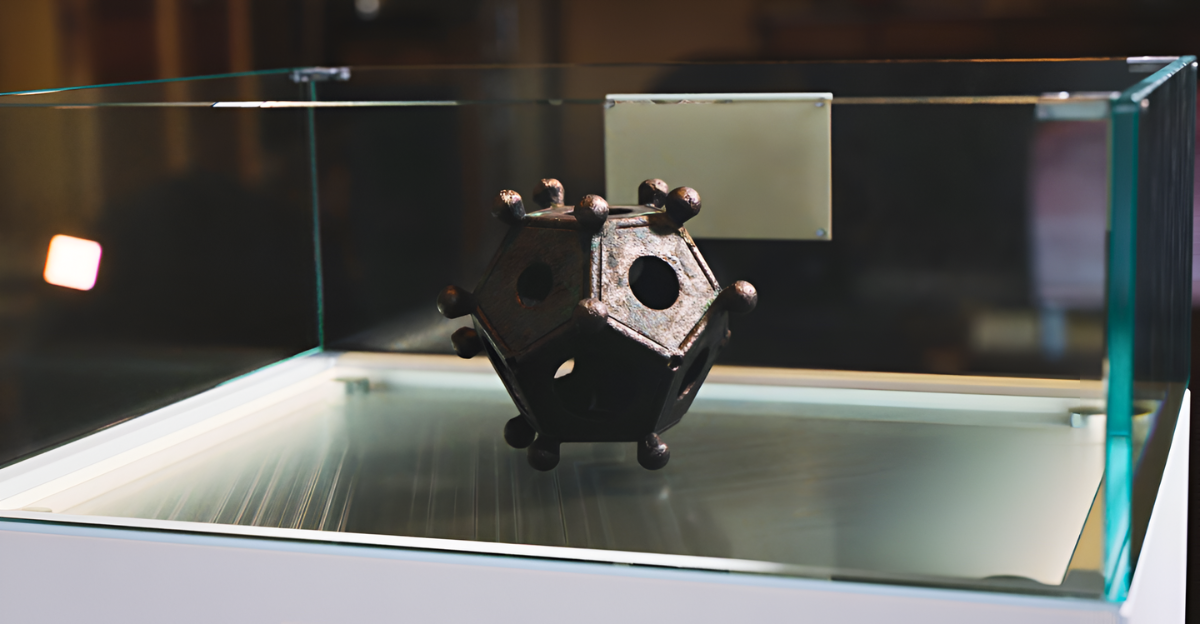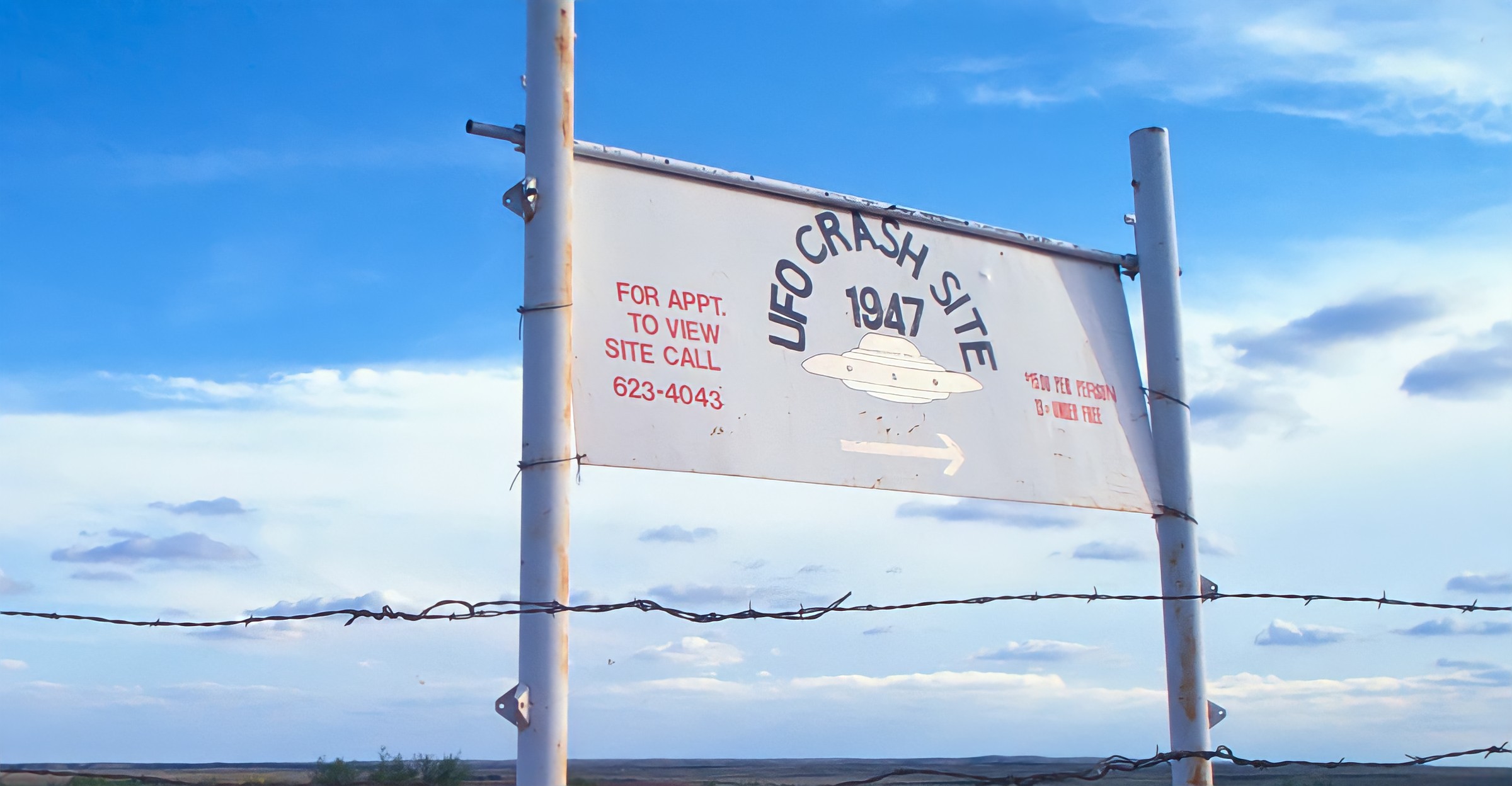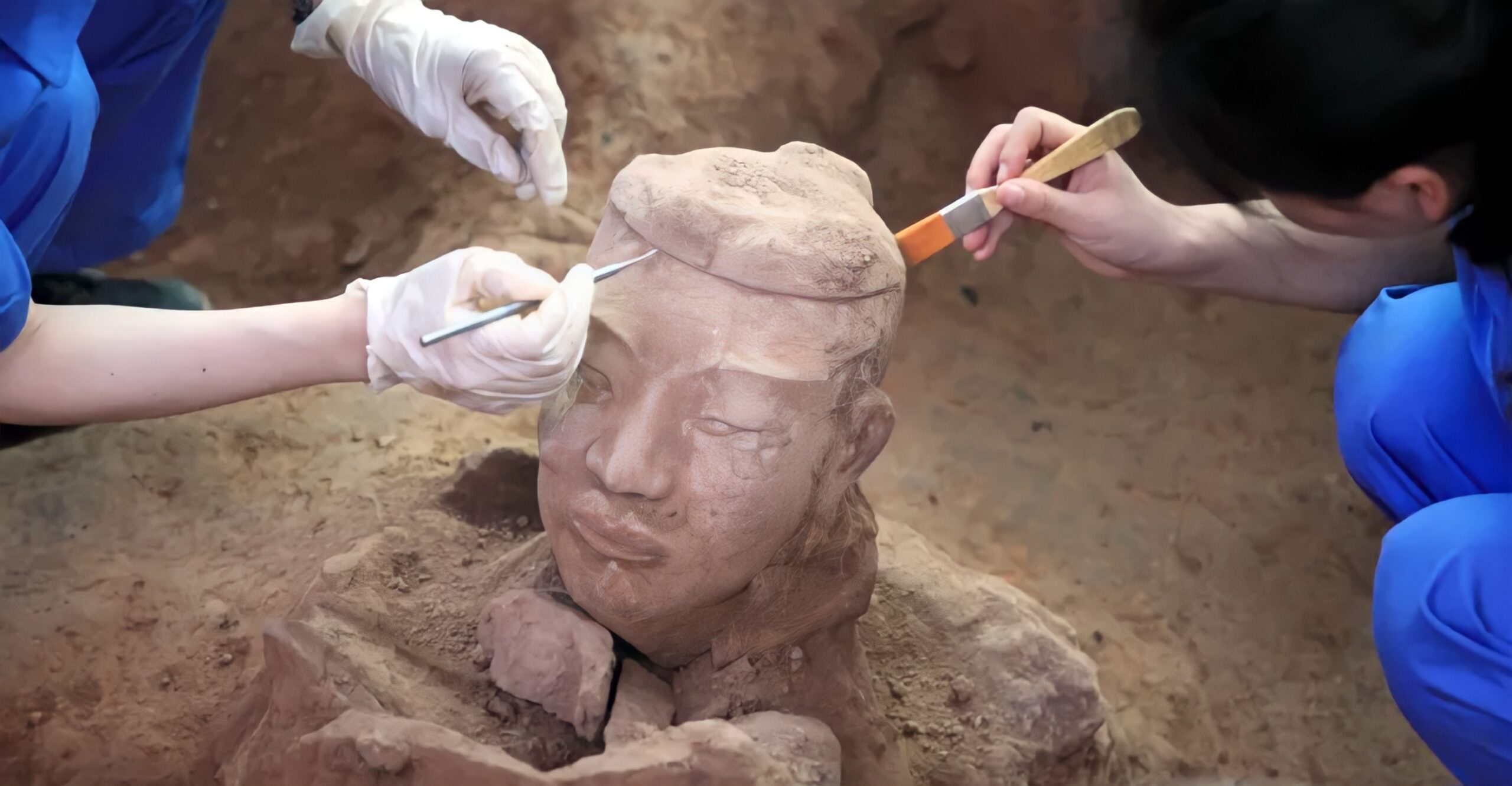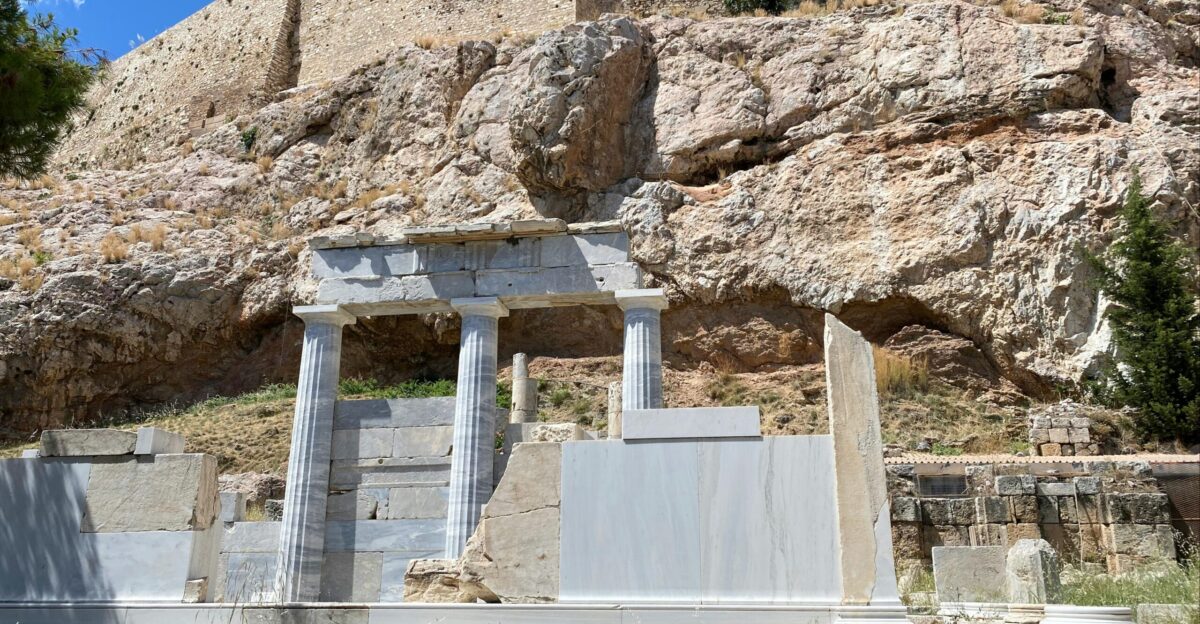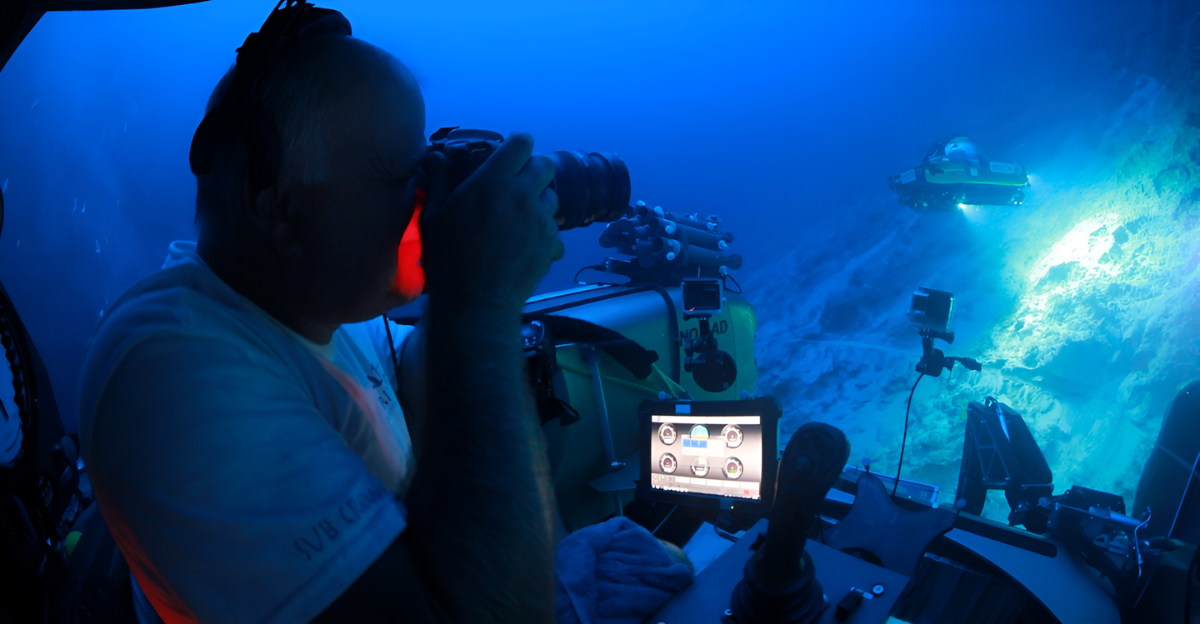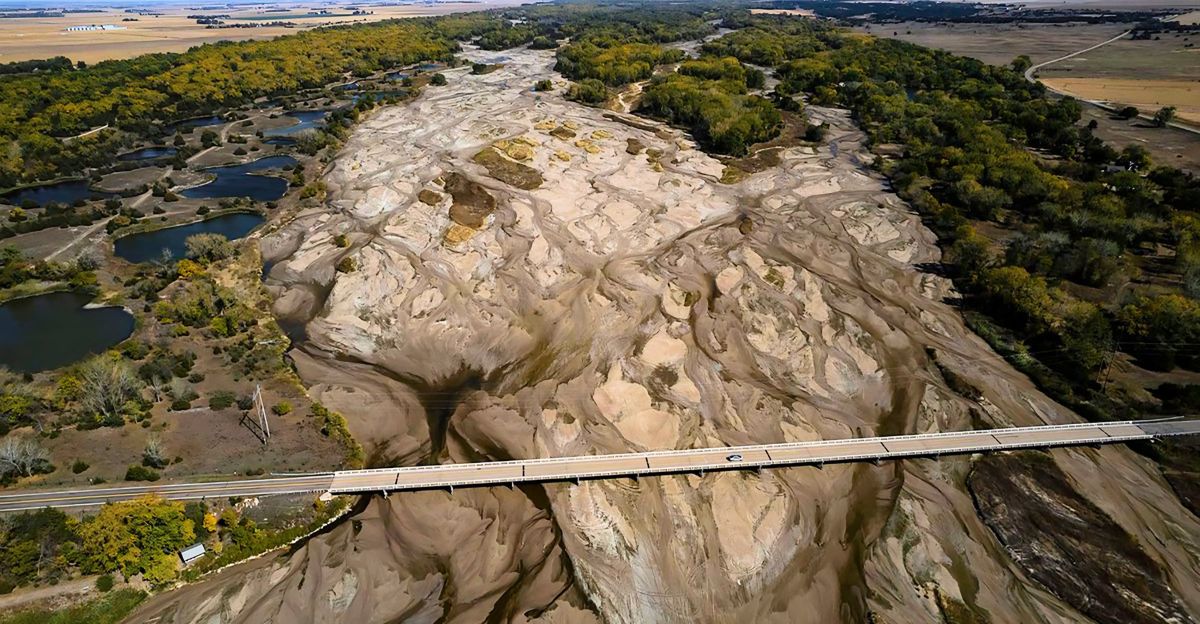
Every now and again, nature peels back its layers and dares us to look closer. Along the Mississippi River, mother nature is doing just that as its landscape is being stripped bare due to unprecedented droughts.
As the world’s fourth longest river, the muddy, churning body of water is known for its significant role in American transportation, culture and history. Now, citizens and travelers alike are marching across what was water just a few months ago to take a look at what the river has been keeping secret.
What they’re digging up isn’t just mud and driftwood—it tells tales of legends, loss, and forgotten American history. So, what exactly is emerging from the receding waters of the river?
When Droughts Rewrite History
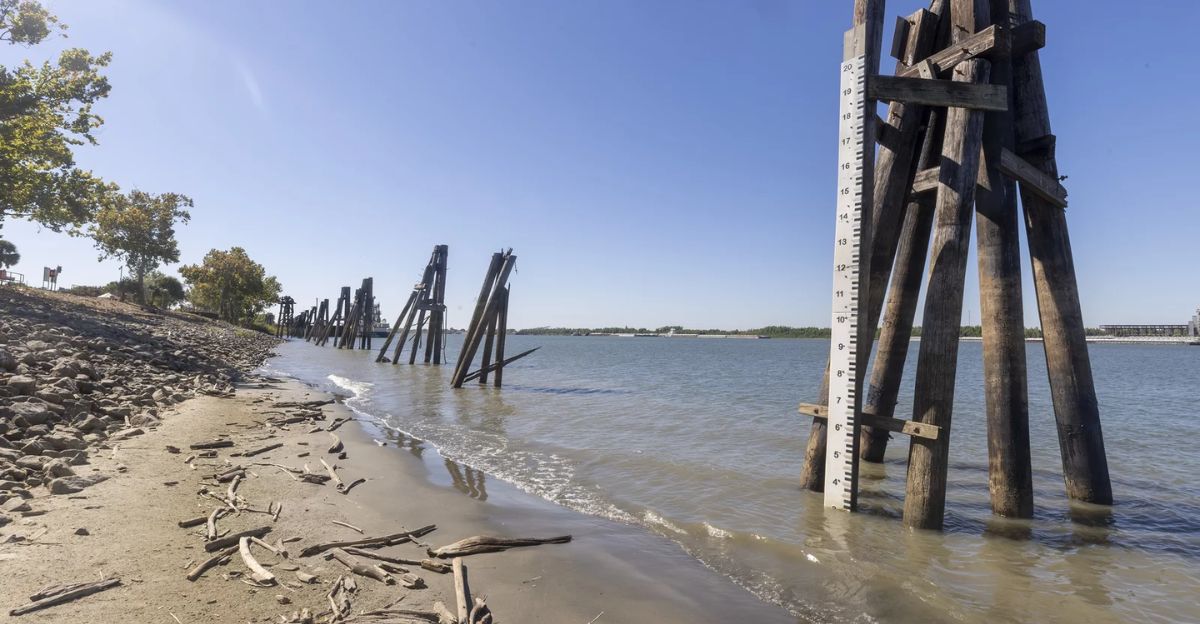
Drought is not just a weather phenomenon; it’s a global disruption that reshapes landscapes worldwide, affecting everyone from farmers to archaeologists. As the Mississippi River dries up, the consequences ripple far beyond shipping schedules and dehydrated crops.
Around the globe, droughts are uncovering ancient ruins, hidden villages, and shipwrecks, compelling us to acknowledge how extreme changes in climate can reveal our history in surprising places.
In America, the low waters of the Mississippi River currently take center stage as history reveals itself, reminding us that environmental disasters tend to serve as inadvertent time machines, bringing to light what was never intended to be discovered.
A River of Memories: The Emotional Toll
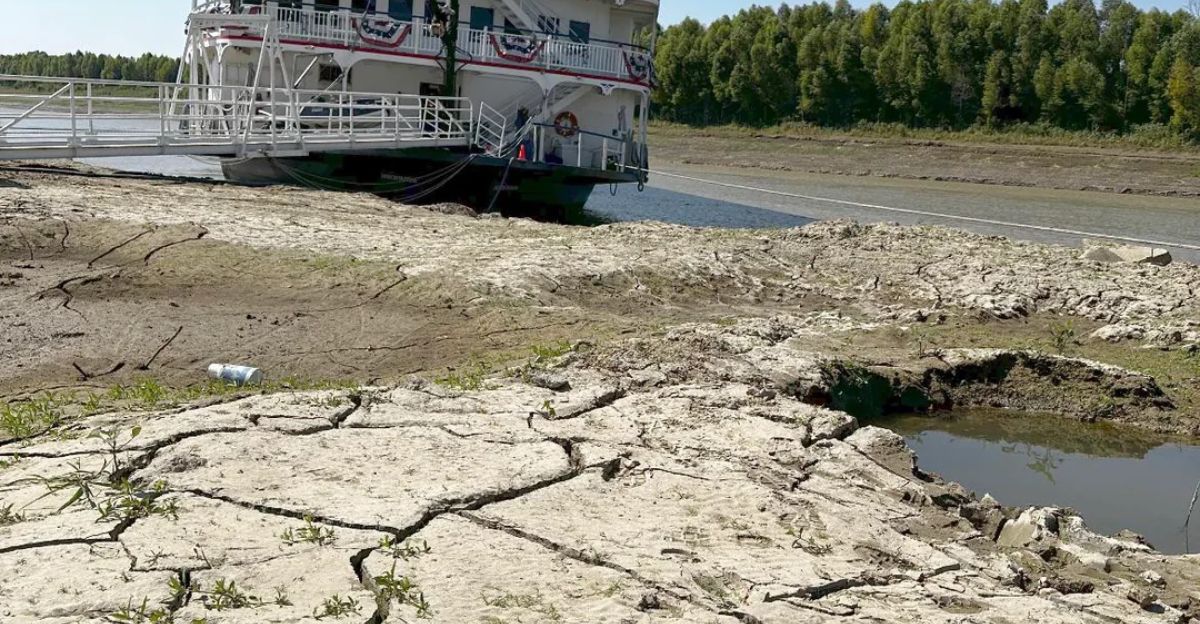
For the people who live along the Mississippi, this drought is a more than a nuisance—it’s a jarring collision of memory and loss. Facebook and Instagram are filled with videos of individuals treading on the riverbeds, their voices a calling card of both amazement and despair.
Some wonder at the surprising opportunity to connect with history; others lament the vulnerability of the river, witnessing pollution and decay alongside relics.
The emotion is palpable: a deep sense of longing for lost eras, dismay at what has been discarded, and a growing fear of what else may be revealed as the river continues to shrink.
Why Is the River Giving Up Its Secrets Now?
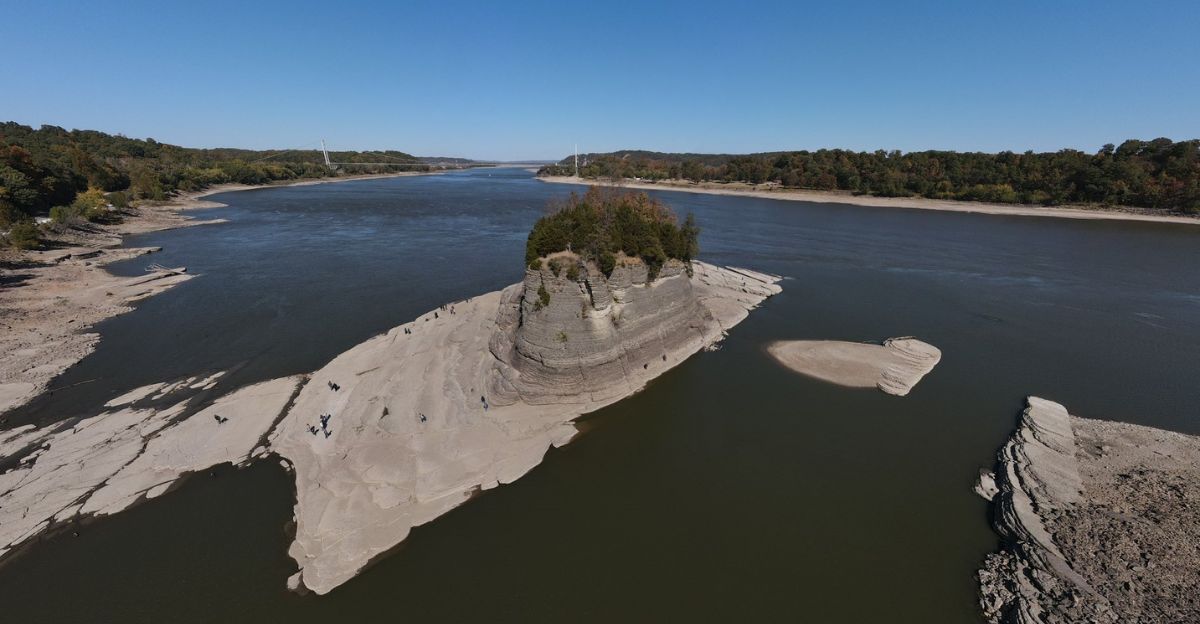
Many wonder why these relics are being discovered now when the area and country is no stranger to drought. However, increased climate change has intensified drought cycles, shrinking the river to record lows.
Upstream, levees, dams, and reservoirs have filled in the river’s natural cycles, leaving it more vulnerable to extreme weather fluctuations. Environmentalists say that those changes are only accelerating, turning the river into both a casualty and a witness to human history and destruction.
When the water recedes, the riverbed is a living repository—one created as much by human engineering as by nature’s constant cycles of push and pull.
Shipwrecks, Relics, and Human Remains
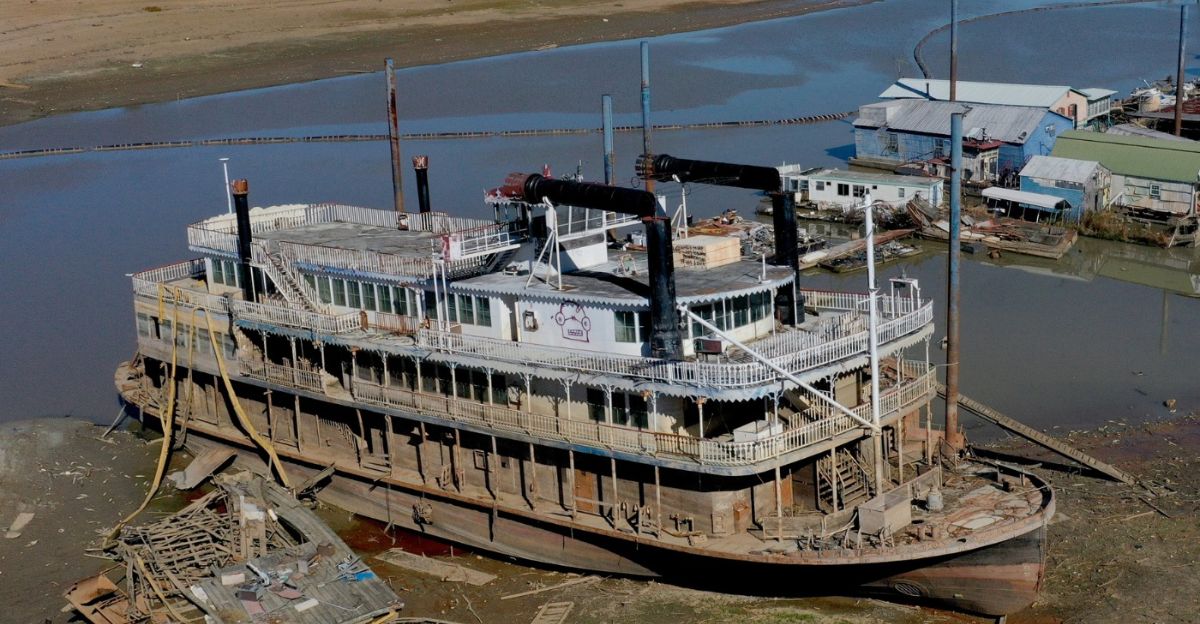
And now, after decades, centuries even, the drought has uncovered amazing artifacts hidden under the surface of the Mississippi.
In Baton Rouge, the Brookhill Ferry from the 19th century—once an important crossing for humans and animals alike—lies bare in its entirety, its wooden hull and iron spikes visible for the first time in a century.
Buried beneath the soil under bridges close to Memphis, Civil War bullets and a pristine Union cartridge box plate have been excavated, brutal reminders of war and long-lost lives. Further, human remains have been found, a chilling look into the river’s tragic history.
Who’s Uncovering These Lost Relics?
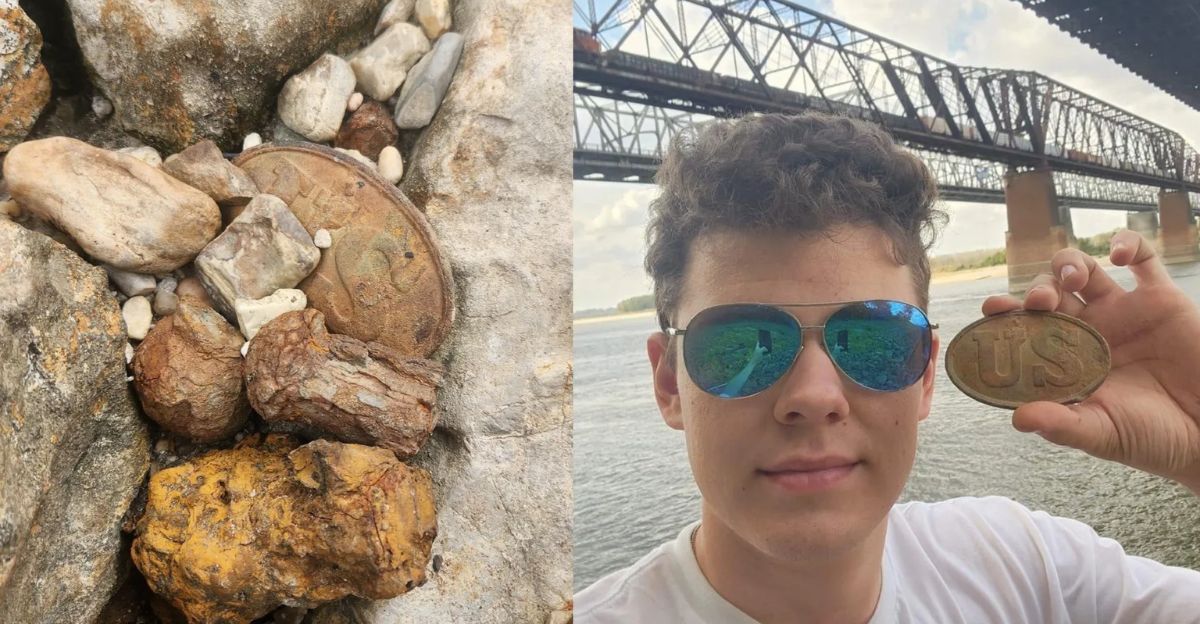
Interestingly enough it’s not only archaeologists who are unearthing these discoveries. American citizens, history buffs, and local explorers are paving the way too.
For example, Riley Bryant, a 21-year-old relic hunter, found Civil War-era artifacts and shared them on TikTok and Instagram. The posts went viral and inspired interest, drawing hordes of treasure hunters to riverbanks.
Further, families out for a walk have discovered the remnants of shipwrecks off the coast and human remains, turning casual outings into occasions of historical significance. This level of discovery is changing the way we interact with the past—one Instagram post at a time.
Saving the Past: Opportunity or Crisis?
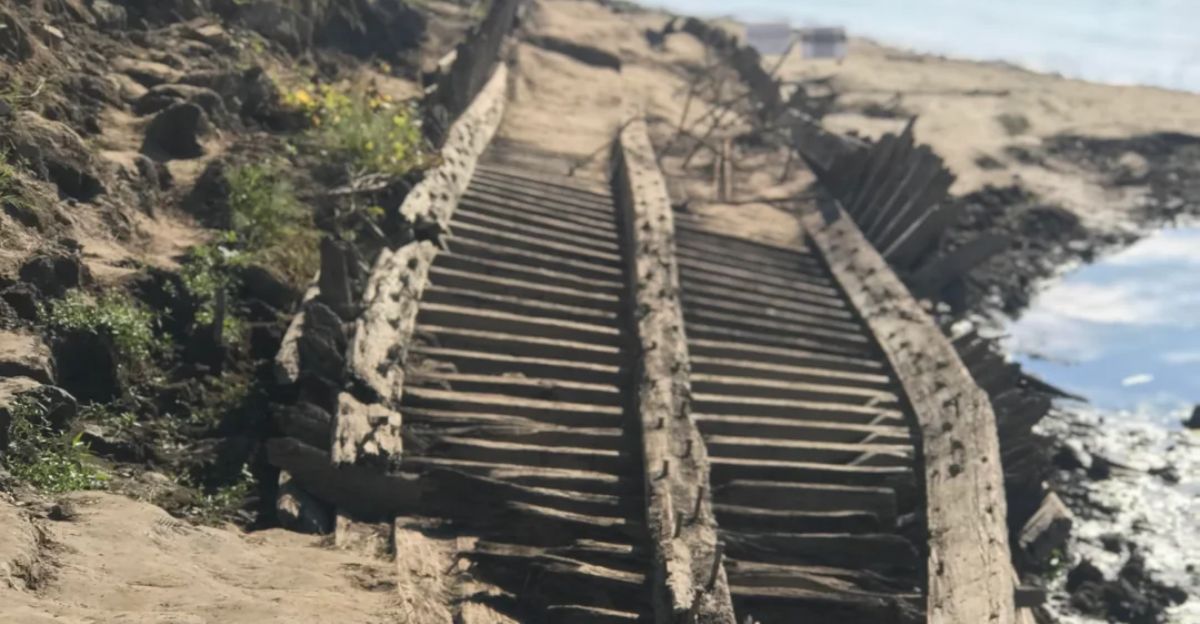
While such discoveries bring joy to historians and archaeologists alike, they also bring with them strong concerns about preservation. Discoveries, such as the Brookhill Ferry, which were hidden in mud for decades, now face immediate degradation as it’s exposed and dehydrates.
Archaeologists are working against a ticking clock, aware that the next flood—or even a careless tourist—can damage or destroy these ruins and relics forever. Now, put to the test, they must find solutions that ensure a balance between public enthusiasm and preservation, and protection is found.
This balancing act will likely determine whether we can save the fragile shards of the past at all and how much of it survives for generations to come.
A Broader Reckoning: Climate, Archaeology, and Change
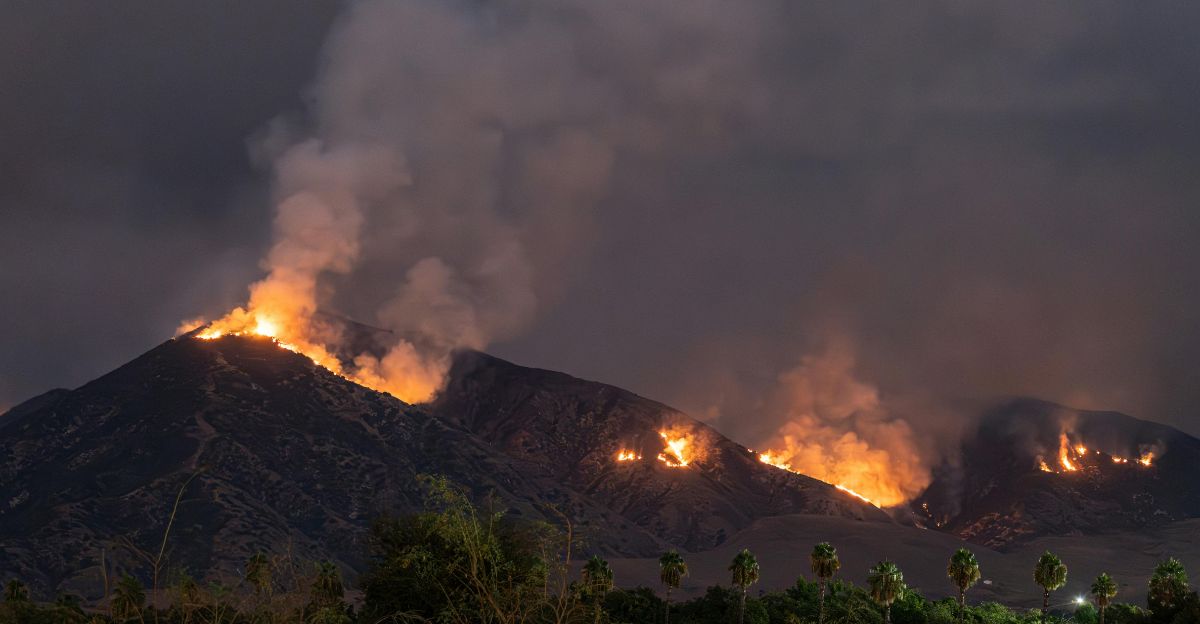
The Mississippi’s discoveries as a result of drought are not rare by any means. They’re one example of a worldwide trend as global warming worsens
As climate change accelerates, archaeologists warn that extreme weather—droughts, floods, wildfires—will excavate and endanger ancient sites worldwide.
The Mississippi River’s story is a microcosm of widespread change: the past can no longer rest peacefully, buried underground. Rather, environmental upheaval is forcing it to the surface and giving us the opportunity to rethink how we value, study, and preserve our shared heritage.
Finding Treasures in Environmental Tragedy
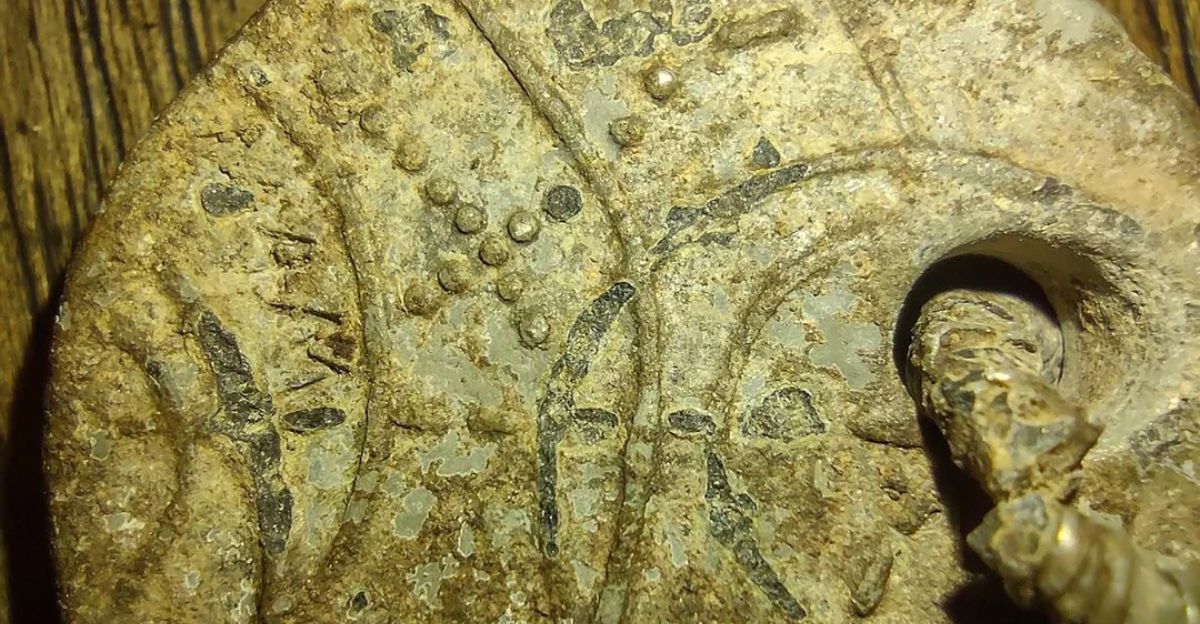
A dramatic example can be seen in Norway, where receding glaciers revealed a long-forgotten Viking mountain pass at Lendbreen.
When the ice melted away, archaeologists found hundreds of perfectly preserved artifacts—horseshoes, remains of sleds, and a Viking Age mitten—dated from roughly AD 300 to 1500. The relics, locked in time, tell a story of ancient travel and contact, with insights into high-altitude living and trade in the Viking Age.
The find highlights how environmental transformation can suddenly provide us with whole pages of human history, turning distant landscapes into archaeological treasure grounds.
What Next Will We Lose?
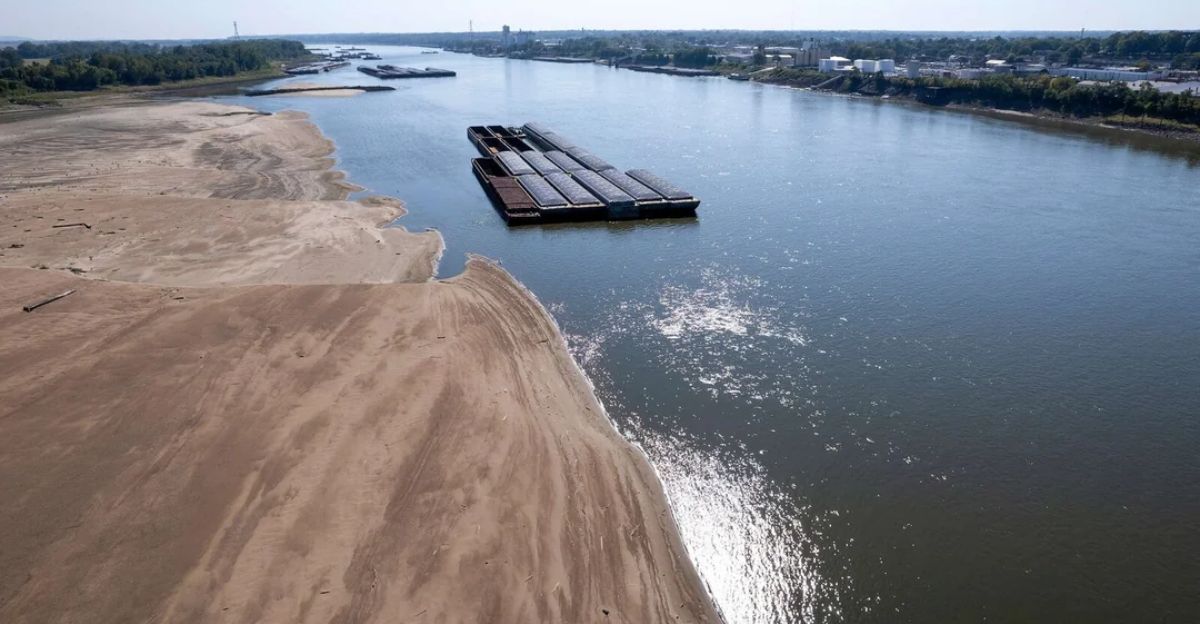
The Mississippi River’s uncovered chapters of American history can be seen as a blessing as well as a warning. Since the river’s waters will eventually recede, most of these treasures will be lost once more—buried again, washed away, or destroyed completely.
The whimsical nature of climate change is such that this year’s drought could be followed by ruinous floods, erasing these newly found treasures, next year.
This fleeting window of opportunity challenges us: do we seize the moment and learn from these discovered relics, histories and remains, or do we let them be buried once again, lost to mother nature potentially forever?
The River’s Lesson: History Is Never Really Gone
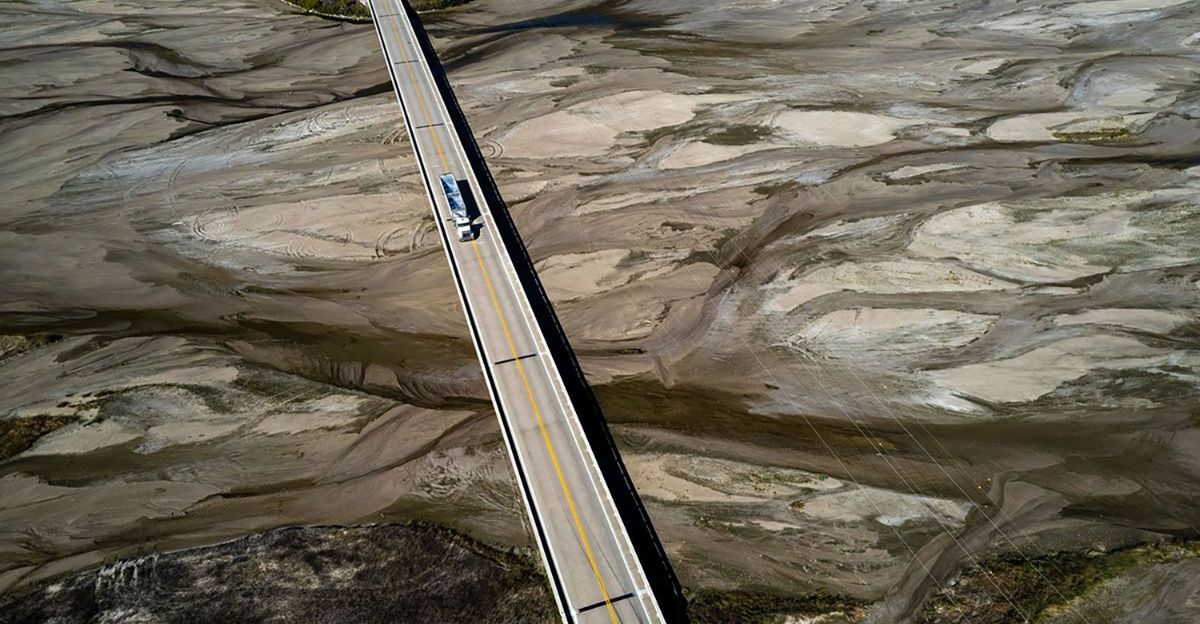
In the end, the drought that has plagued the Mississippi River brought along with it a surprising and emotional reminder that history is never lost but just biding its time to come back again.
These hidden chapters, now exposed, compel us to reconsider what we know of America’s past and the way we engage with the land beneath our feet. As climate change and public interest reshape the river’s story, one thing is certain: every flood, every drought, every shift in the earth is capable of changing what we remember and what we forget.
The world’s riverbeds are whispering, but are we listening?

